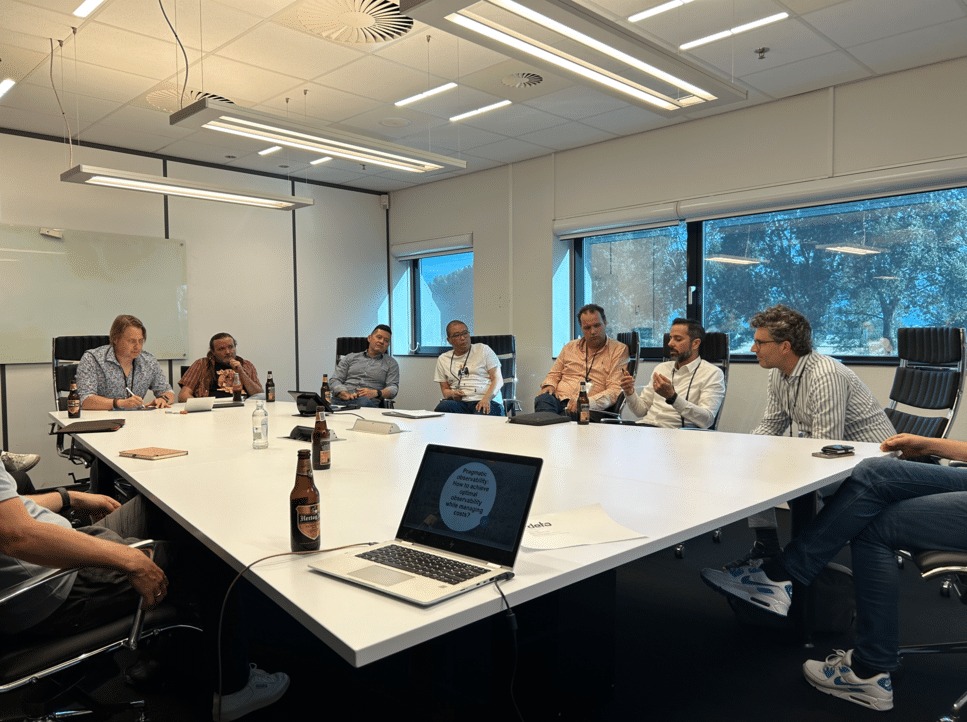In our latest #DevOpsQA series, we sit down with Jasenko Dizdarevic, Head of Platform Engineering & Operations at ProSiebenSat Media to talk all things tech and engineering.
Jasenko offers his advice to businesses looking to build highly performing tech teams, how to keep the top technical talent engaged and discusses the benefits and challenges that come with pursuing a career in tech.
Third Republic (TR): Could you explain a bit about your career journey and how you got into a career in tech?
Jasenko Dizdarevic (JD): I always had an interest in engineering and programming. After university I got into a career in software development and that’s where my career in tech began. I started a team lead role for a telecoms firm and while there managed a team for around 5 years. I then moved to Germany and now manage a team developing container-based platforms.
TR: What tips would you give to businesses looking to build highly performing tech teams?
JD: It’s always about people. You need to listen to your team, what motivates them? What improves their productivity and performance? While it’s nice to have a great office and other benefits like lunches etc., this definitely shouldn’t be paramount. The work-life balance of employees is key. Providing them with the time to relax will ensure that when they are working, they are more focused and more highly performing.
The culture of a team is also really important. Every new person that joins needs to be the right cultural fit, this doesn’t mean to say everyone needs to be the same. But when you’re looking for new hires, it’s vital to communicate the culture of the team they’ll be working in. This way both you and the candidate can make an informed decision around whether it would be suitable for them. Saying this, managers should be thinking about creating an environment which allows people and motivates them to work.
Another factor in ensuring that the engineers are motivated and highly performing is to give them autonomy. Respecting people in how they decide to orient what they need to do. Everyone has different experience and knowledge, there’s no one right way to get the work done. So, giving tech teams some freedom in how they operate is definitely motivating. Also, it may sound obvious but providing your team with the tools and tech to do their job. Listening to what they need and their suggestions on new tech will help the team develop and keep up to date.
TR: Based on this, how do you think businesses can help tech teams to improve their delivery quality and build an autonomous culture?
JD: Related to my previous answer, if your employees have a very solid opinion of a specific technology, then it’s important to look into this. Introducing new technologies at the suggestion of team members can help improve delivery quality and in the long run add value.
You need to create an environment that is transparent. Build processes so that everyone across the team knows what’s going on and feels a part of it. Visualise the work. You need to have frequent meetings with the whole team and visualise projects. Ask for everyone’s opinion and get everyone talking.
As a manager it’s important to get your team communicating. Exchanging experiences and knowledge helps everyone develop – from junior members of the team to more senior member with years of experience.
TR: In recent years, have you found there is a shortage of skills or a skills gap within technical talent?
JD: There certainly is a shortage in talent. However, since technology is advancing at a really rapid pace, I’d say some sort of skills gap is expected. There is naturally a shortage of skills in the newer technologies and I’d say this is quite normal.
Saying that, in terms of tech talent in general there is definitely a noticeably small pool of talent out there. We don’t have enough people with a broad range of skills in the market at the moment. This is why it’s important for businesses to think about and nurture our future pipeline of tech talent.
TR: How do you think businesses can best keep top talent engaged?
JD: First of all, I’d say it’s about the work. The tech talent in today’s day and age want meaningful and challenging projects to work on. As a team lead it’s important to keep projects interesting. Pay attention to what it is that your engineers want, and the team wants. If you provide your engineers with work that suits them and their strengths, then their talent will bring the business value.
If your engineers are coming to you with suggestions – listen. In today’s world of tech every engineer is different, has different skills, knowledge and experience. And everyone provides value in different ways. As a manager or a leader, it’s vita to put your ego aside and listen to other ideas that could add value.
TR: What advice would you give to those starting out their careers in engineering?
JD: I’ve seen people start careers in engineering because of the money. My main piece of advice is don’t do it for the money or the prestige. A career in engineering is difficult and you really have to work hard. Only pursue a career in engineering if you have a passion for it.
You have to be prepared to always keep learning. Technology is changing so rapidly that keeping up to date with the changes is tough in itself. It takes time to climb up the ladder and gain the experience. You have to be patient and just really put the hours in and work hard.
TR: What are some of the benefits and challenges of a career in tech and/or engineering?
JD: Let’s start with the benefits. As I’ve mentioned it’s a very fast-paced environment – no 2 days are the same. You learn something new every day and really have the chance to develop on both a professional and personal level. There’s also a lot more creativity and autonomy in the role of an engineer now, which makes it much more fun.
In terms of challenges, you do have to change yourself a bit in order to be successful. It requires a lot of dedication, so as I said in the last question passion is key. Also, the constant learning and development can be a challenge for some people. You never fully switch off.
TR: Finally, do you think that recruitment agencies can provide value in these competitive, fast-moving markets?
JD: Of course, every little bit helps. However, the question is to what extent? The agencies that really take the time to get to know their clients and the type of person that’s the right cultural fit as well as having the right skills, definitely provide value.
If you’re interested in taking part in our next Tech Q&A, or are looking to source tech talent get in touch with our specialist teams today!




